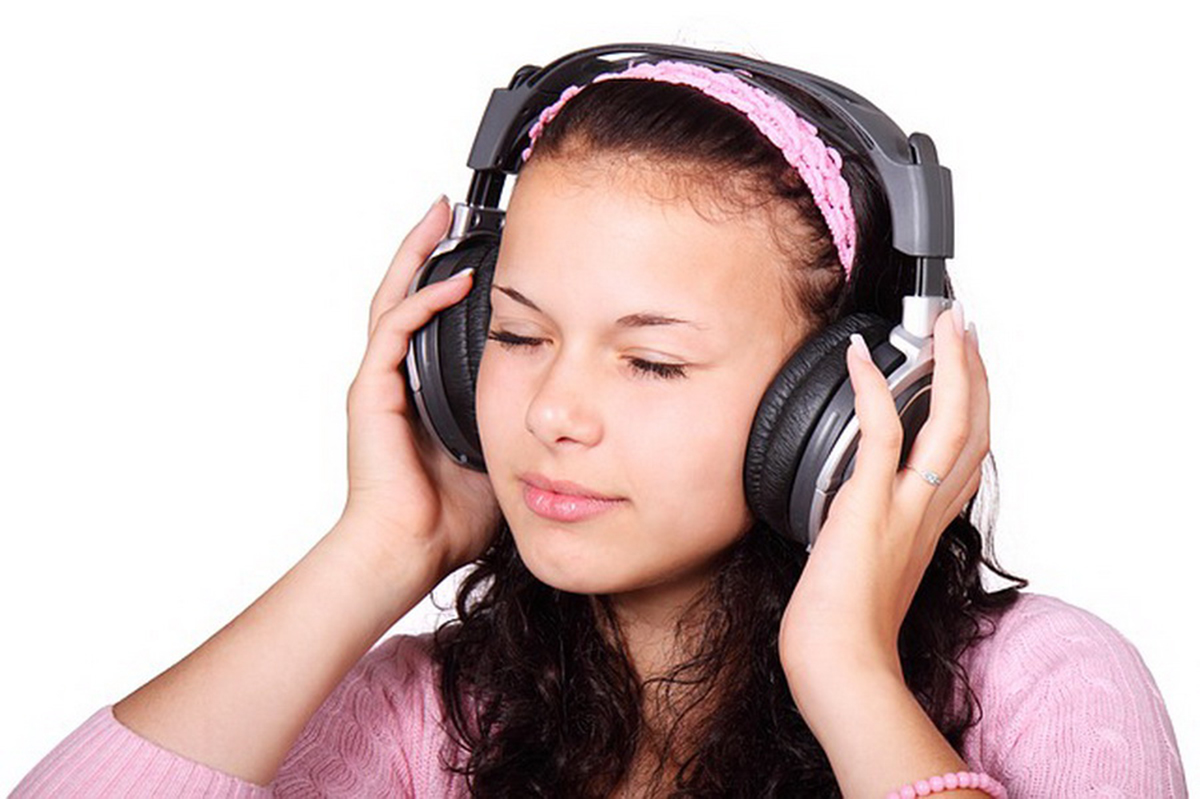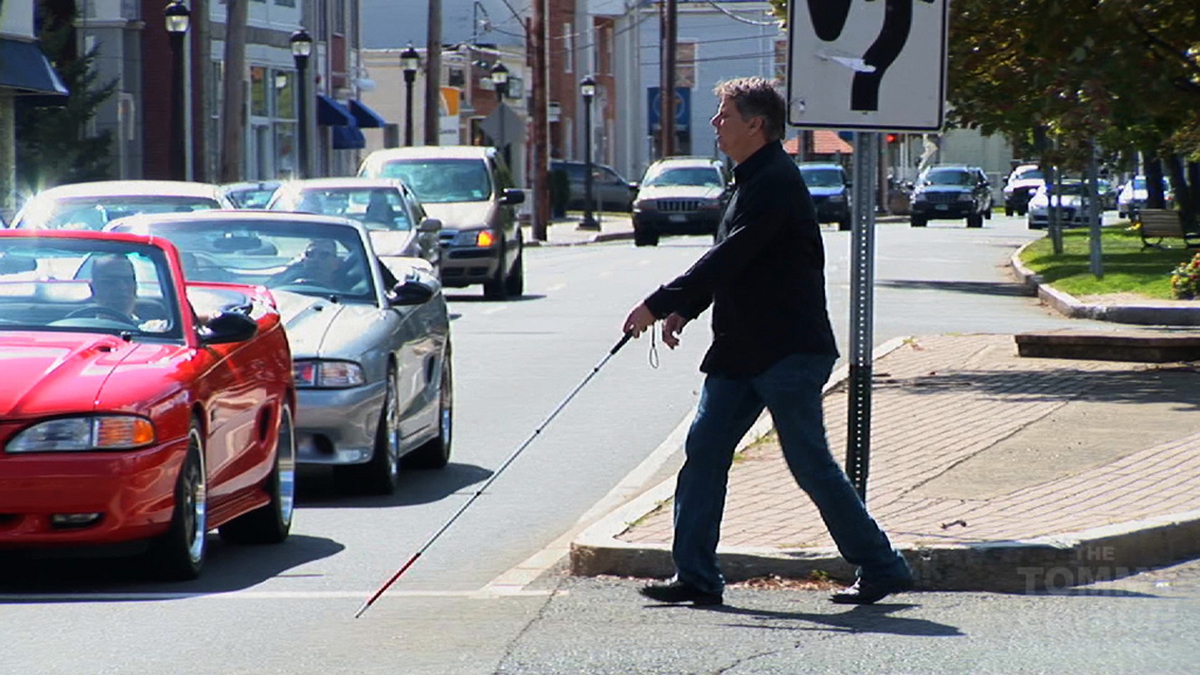Neuroscientists have discovered that restricting a person's sight for as little as a week may improve the brain's ability to process sound.
Dr. Hey-Kyoung Lee, researcher at the Zanvyl Krieger Mind/Brain Institute and an associate professor of neuroscience at the Johns Hopkins University, collaborating with biologist Patrick Kanold at the University of Maryland at College Park and three other scientists, recently published a paper on the relationship between hearing and vision in the brain in the journal Neuron.

In a series of experiments using mice, Lee, Kanold, and other researchers discovered how the neural circuits that support hearing and sight work together to support each sense, and to maximize sensory inputs when one or the other of the two senses is deficient.
The scientists placed healthy adult mice in a darkened (although not completely dark) environment for a week and observed their brain activity and behavioral responses to certain sounds. They then compared the brain activity and behaviors of the test mice to a those of a control group of mice that had been kept in normal light conditions.
“Our result would say that not having vision allows you to hear softer sounds and better discriminate pitch,” Dr. Lee said in a Johns Hopkins University press release.
The researchers also found that deafening, placing the mice in a very quiet environment, increased the strength of neural circuits in the visual cortex. When the mice were deprived of sound, their vision became more acute.
How would these findings apply to humans?
Dr. Lee gave the example of trying to listen to a familiar song over a lot of background noise. Dur to the background noise, some of the notes and some of the rhythms may be lost. It may be possible to hear the melody but not the harmony, or it may not be possible to feel the rhythm due to the interference of ambient sound.
See Also: 1 in 5 Teenagers Suffers from Hearing Damage Because of Too-Loud Music
Most of us lose some of our sensitivity to sights and sounds later in life, even if our eyes and ears are in good shape. The connections between the thalamocortical inputs in our brains are less flexible when we are adults than they were when we were children. But deprivation of one of our senses can restore these circuits so that the brain is able to devote more attention to one sense than another.
Dr. Kanold stated in a Johns Hopkins University press release that he does not know how long a human would have to stay in a darkened room to have heightened sound perception. or if many people would be willing to try. The effect in mice is reversible when they return to normal-light conditions, Kanold said.
If You Become Blind As An Adult, Does Your Hearing Become More Acute?
The experiments of Dr. Lee and Dr. Kanold and their associates lead to another practical question. When people lose their sight as adults, can they count on having better hearing to compensate? Or does someone have to be born blind to have an extraordinary sense of hearing?

One of the surprising findings of neurological research has been that the occipital lobes, the parts of the brain involved in processing sight, actually work harder, burning more glucose, in congenitally blind people than in sighted people.
However, when people become blind as adults, after the age of 16, these same regions of the brain are less active than they are in sighted people. In adults, it appears that the brain can't switch its processing power to a different kind of sensory input easily. Nonetheless, the brain as a whole becomes more sensitive to sound and touch during deprivation of sight, even if the vision centers of the brain are not more active.
How do we know this?
In Spain, instructors at schools for the blind are required to spend 5 days in training during which they wear blindfolds, to better understand the conditions with which their students deal. By the fifth day, most of the instructors for the blind report that they are better able to distinguish speakers in multiple simultaneous conversations and better able to locate incoming sounds. However, these abilities are limited to the blindfolding period. Less than a day after the blindfolds are removed, exceptional hearing abilities cease.
However, it is not necessary to wear a blindfold for 5 days to experience better hearing. One set of studies found that wearing blinders for just 2 hours was enough to increase the ability to feel different shapes and to hear different pitches.
These findings may explain why music is better at night and sex is better in the dark. With the limiting of visual sensory information, our brains are temporarily better equipped to process auditory and tactile inputs. We hear more of the music of a symphony if we are not distracted by dazzling sights in the concert hall. We feel sexual contact more intensely (not to mention we don't have to worry quite as much about how we look) when we have intimate relations in darkness.
See Also: Ultrasound for the Brain to Improve Sight and Hearing
No one needs deprivation of sight to appreciate music and touchy-feely activities better. All that is necessary is to plan them for nighttime. Be aware that the effect is short-term, and enjoy. You can always turn on the light when the experience is done.
- Petrus E, Isaiah A, Jones AP, Li D, Wang H, Lee HK, Kanold PO. Crossmodal induction of thalamocortical potentiation leads to enhanced information processing in the auditory cortex. Neuron. 2014 Feb 5
- 81(3):664-73. doi: 10.1016/j.neuron.2013.11.023. PMID: 24507197.
- Voss P. Sensitive and critical periods in visual sensory deprivation. Front Psychol. 2013 Sep 26,4:664. eCollection 2013.
- Photo courtesy of PublicDomainPictures by Pixabay : pixabay.com/en/cute-female-girl-headphones-15719/
- Photo courtesy of Ben Churchill by Flickr : www.flickr.com/photos/radiotrippictures/7194630246/


Your thoughts on this